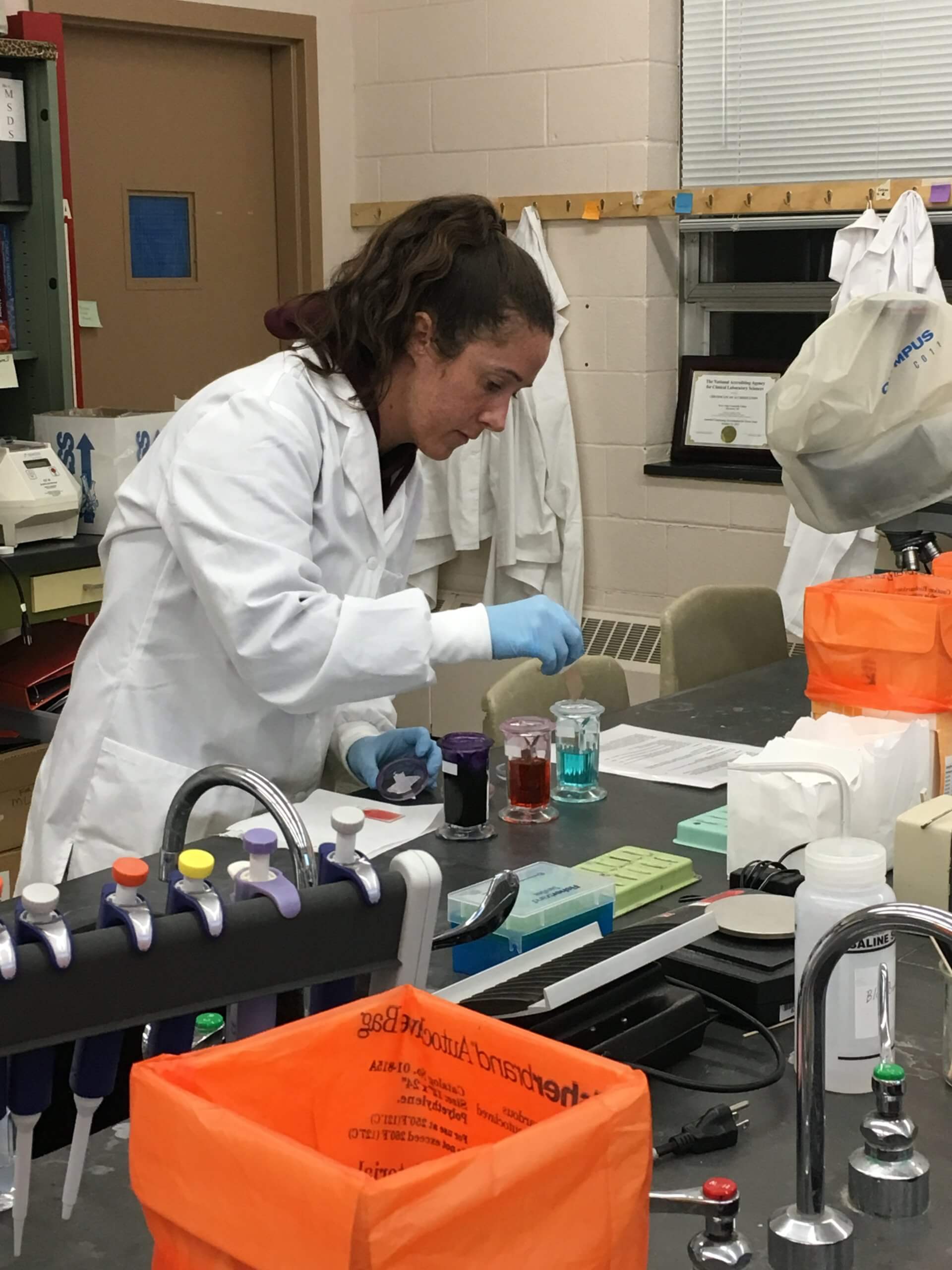Medical Laboratory Technician
Medical Laboratory Technicians (MLTs) play a critical role in the detection, diagnosis, and treatment of disease. MLTs perform highly complex laboratory procedures ranging from detailed manual techniques to sophisticated computerized technology. The continued growth of the laboratory science profession is producing an increased demand for educated and motivated laboratory professionals. Opportunities for employment for the MLT include: hospital and reference laboratories, physician offices, clinics, forensic laboratories, pharmaceutical companies, and research facilities.
The MLT program curriculum is mathematically and scientifically rigorous and integrates professional and general education courses to provide students with both skills required for the profession as well as general life skills. Students entering into this program should have strong interest and ability in science and math, as well as strong attention to detail, as these areas are the foundation for all program courses. In addition to classroom studies, students will spend their final semester in practicum placement at an accredited hospital or private laboratory refining skills in specific clinical areas. In order to be eligible for the Clinical Practicum, students must have met grade requirements listed below. Students need to make personal and financial plans to attend this practicum full time during their final spring semester. Clinical affiliations are arranged based on pre-determined criteria and are subject to availability of facilities located throughout New Hampshire and Vermont. Students are required to have liability and health insurance prior to being placed for their clinical rotations. CPR certification is recommended and may be required by some clinical sites. Students must also be able to provide their own personal transportation to all clinical assignments. A criminal record background check may be required for affiliation experience at the request of an agency. All students are required to provide proof of immunity to infectious disease (through vaccination or titer) prior to attending clinical practicum. The cost of all items listed is the responsibility of the student.
Admission Requirements
- Satisfy general requirements for admission to the College
- Have credits (or the equivalent) in high school or college algebra, English, biology and chemistry.
- Interview with the Program Director or MLT Academic Advisor
- Complete the Supplemental MLT Application Questionnaire found on the RVCC MLT Webpage
All student’s health status and abilities must be compatible with the tasks and duties of a MLT including the ability to perform certain motor skills involved in collecting blood, using pipettes and a microscope, and accurately reading color charts for interpretation. During the interview with the Academic Advisor, students will be required to verify their ability to perform the essential skills required by employers who hire MLTs through attestation on the “Essential Skills of a MLT” form which can be found on the MLT RVCC Website.
Upon completion of the MLT program, students are qualified for immediate employment and are eligible to sit for any national MLT certification, including the certification examination offered by the ASCP Board of Certification (BOC). Most employers will require passing of the ASCP exam within a certain time frame following initial employment.
The RVCC MLT program has a direct articulation agreement with both UNH's Medical Laboratory Science Bachelor’s Degree and and Colby Sawyer's Health Science Bachelor's Degree programs. More information on this articulation can be provided during the interview with the Program Director or Academic Advisor.
This two-year Associate Degree program is accredited by the National Accrediting Agency for Clinical Laboratory Sciences, 5600 N. River Road, Suite 720, Rosemont, Il 60018; www.naacls.org; (773) 714-8880
NOTES
* Most science courses listed have co/prerequisites. See course descriptions for requirements.
* All MLTC courses require matriculation in the program or permission of the instructor for registration. All program specific courses require a grade of “B-” or better in order to progress through the program. The Clinical Practicum must be passed with a grade of “B-” or better for program completion. All courses without an MLTC prefix must be passed with a "C" or better.

